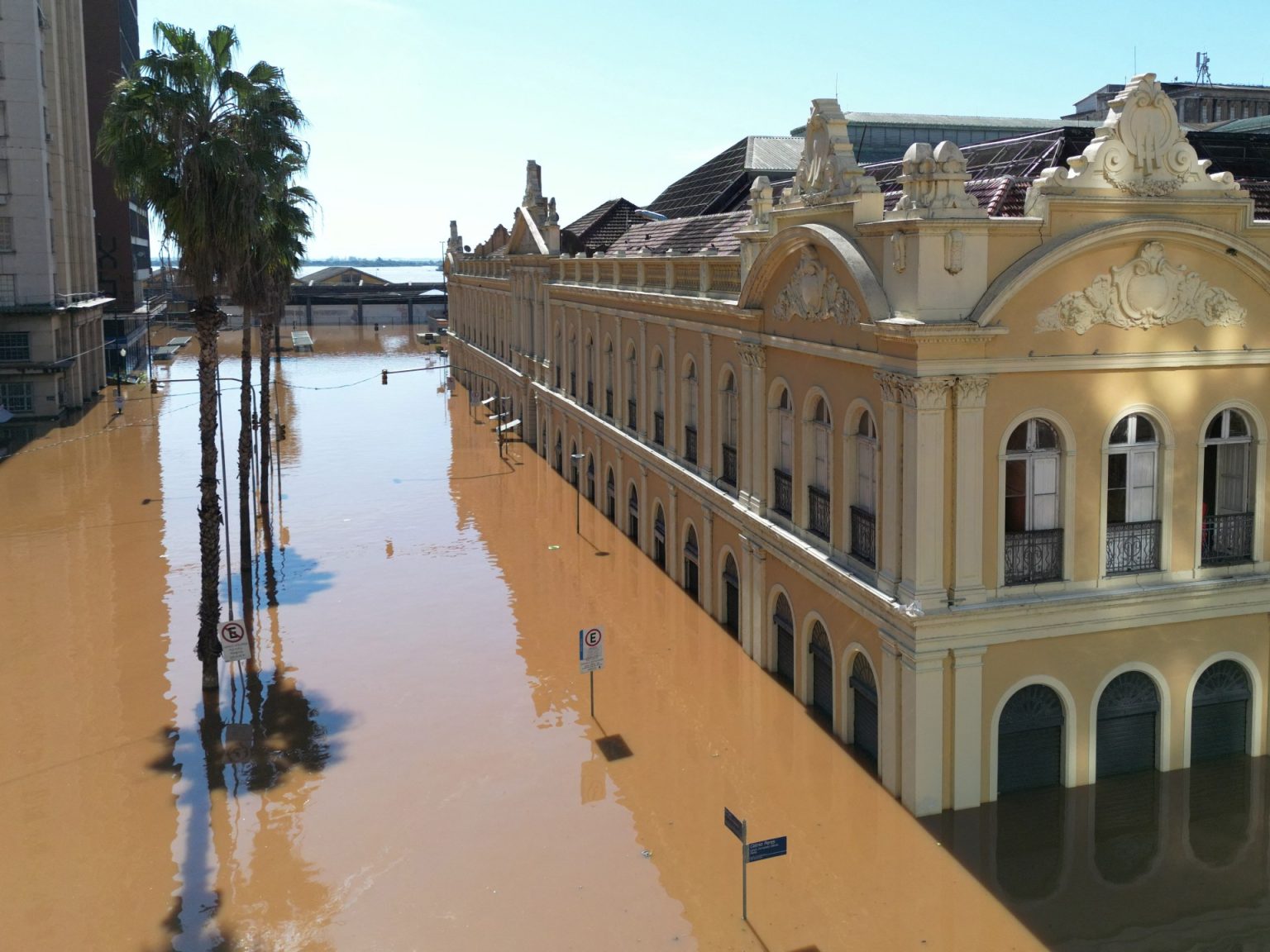Heavy rains and flooding have wreaked havoc in south Brazil, resulting in one of its biggest cities being submerged. Dozens of people have lost their lives, and thousands have been displaced as a result of the natural disaster. The floods have caused widespread destruction, with homes, roads, and infrastructure being severely damaged or destroyed. The city and its residents are facing a major crisis, with emergency services working around the clock to rescue those in danger and provide relief to those affected.
The flooding in south Brazil has highlighted the urgent need for better disaster preparedness and response measures in the region. The devastating impact of the floods has exposed the vulnerability of the city and its population to such natural disasters, and the importance of having robust systems in place to deal with emergencies of this scale. As climate change continues to exacerbate extreme weather events, it is essential for authorities to invest in mitigation and adaptation measures to protect communities from the devastating consequences of flooding and other natural disasters.
The city and its residents are struggling to cope with the aftermath of the floods, as they face the daunting task of rebuilding and recovering from the damage caused by the disaster. The loss of lives, livelihoods, and homes has left many people traumatized and in need of support and assistance. The local government, along with humanitarian organizations and volunteers, are working tirelessly to provide aid to those affected by the floods, offering shelter, food, and other essential services to help them get back on their feet.
The floods in south Brazil have not only caused significant loss of life and property, but have also disrupted the daily lives of residents and businesses in the affected areas. With homes destroyed and infrastructure damaged, many people are struggling to access basic necessities such as clean water, food, and shelter. The economic impact of the floods is also substantial, as businesses are forced to close and residents are unable to work or earn a living. The road to recovery will be long and challenging, requiring a concerted effort from all levels of government and society to rebuild and revitalize the city and its communities.
As the floodwaters recede and the extent of the damage becomes clearer, the focus is shifting towards long-term recovery and rebuilding efforts in south Brazil. It will be crucial for authorities to assess the vulnerabilities exposed by the floods and implement measures to enhance resilience and preparedness for future disasters. Investments in infrastructure, early warning systems, and community engagement will be essential to mitigate the impact of flooding and other natural hazards in the region. By working together and learning from the lessons of this tragic event, the city and its residents can rebuild stronger and more resilient than before.
The floods in south Brazil serve as a stark reminder of the devastating power of nature and the urgent need for collective action to address the growing threat of climate change. As extreme weather events become more frequent and intense, it is imperative for governments, communities, and individuals to take proactive steps to reduce vulnerability, enhance resilience, and protect lives and livelihoods. By prioritizing sustainable and climate-resilient development practices, we can build a more secure future for ourselves and future generations, ensuring that disasters like the recent floods in south Brazil are less likely to have such devastating consequences.


